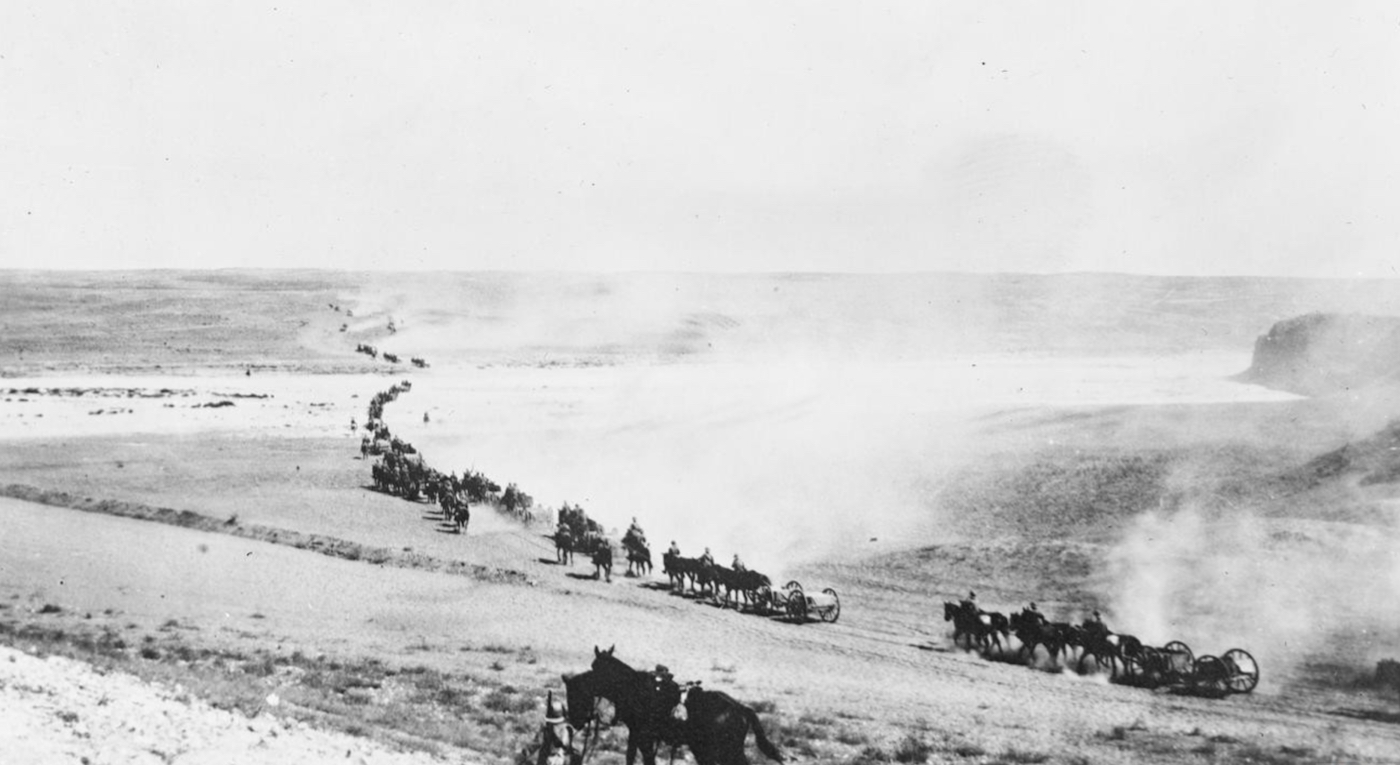
Sinai and Palestine Campaign
The British defeat the Turks in Egypt, Palestine and Syria
28 January 1915 - 30 January 1918
During World War One, the Sinai and Palestine Campaign was fought between the British and Ottoman Empires. The campaign started in 1915 when the Turks attempted to take control of the Suez Canal. It ended in 1918 with the Armistice of Mudros, where the defeated Turks had to give up Syria and Palestine.
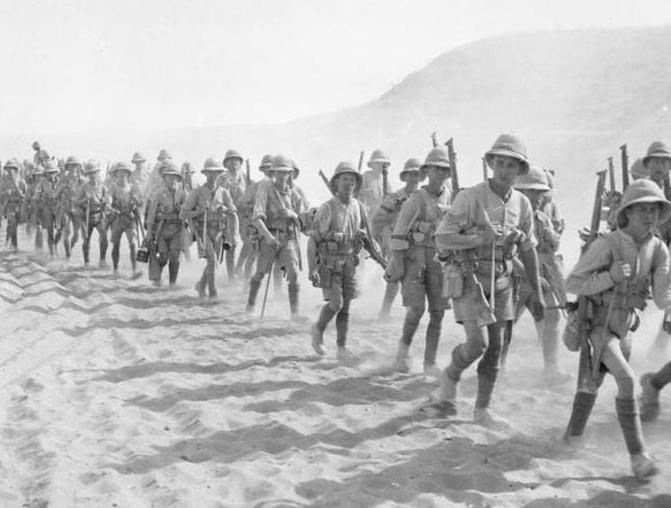
1 of 4
Water was paramount and the amounts needed were huge: nothing could be done in the desert without securing water supplies. An impressive 12-inch-wide pipeline was laid in order to pump drinking water forward, with storage tanks established, from which the ubiquitous camels would carry the water to the forward positions in zinc containers. With temperatures spiralling, no shade and frequent sandstorms, the desert environment was excessively harsh.
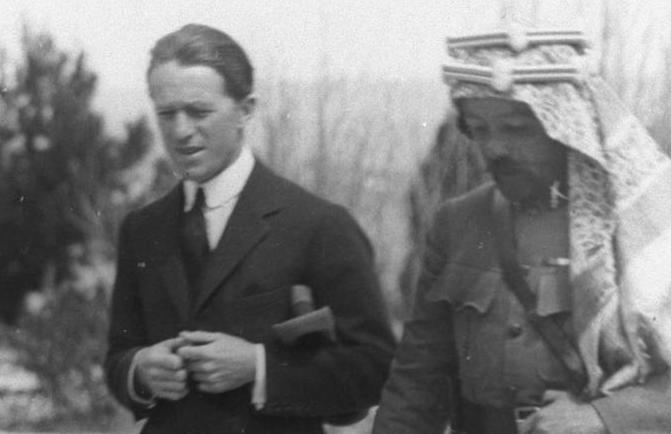
2 of 4
The course of the Arab revolt was punctuated by quarrels between the various factions and tribes involved, and the duplicity of British and French politicians preparing their respective post-war spheres of influence in the Near East. The key British personality on the ground was the gifted Captain (later Colonel) T. E. Lawrence, a young Oxford archaeologist with profound knowledge of, and sympathy for, the Arab cause.
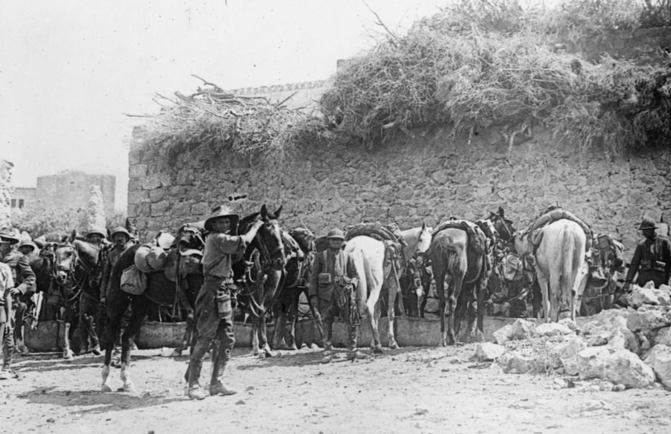
3 of 4
There were Imperial expansionist interests to be considered, but first the war had to be won. As with Gallipoli, Mesopotamia and Salonika, Palestine proved to be a waste of resources. The strategic objectives – control of the Dardanelles at Gallipoli, oil in Mesopotamia, the survival of the Serbian Army at Salonika and the security of the Suez Canal in Egypt – could all have been secured with a far smaller investment of precious resources.
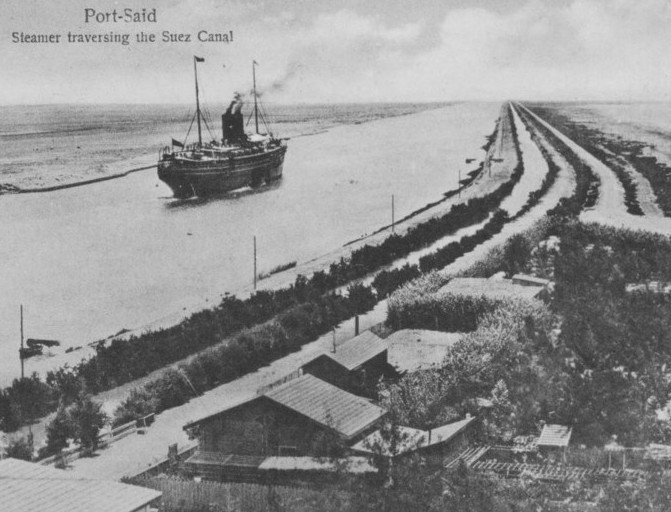
4 of 4
The Suez Canal was the most important line of strategic communication in the Entente’s war zone, through which passed not only much essential supply but also, at that moment, the convoys bringing the ‘imperial’ contingents from India and Australasia to Europe. The difficulty was in execution, for the Turkish approaches to the Canal lay across the hundred waterless miles of the Sinai desert.
The British established a stranglehold on the Ottoman Empire suzerainty of Egypt in 1882 and, whatever the legal niceties of the situation, had been in effective control there ever since. The importance of Egypt lay in its location as the neck containing the jugular of the British Empire.
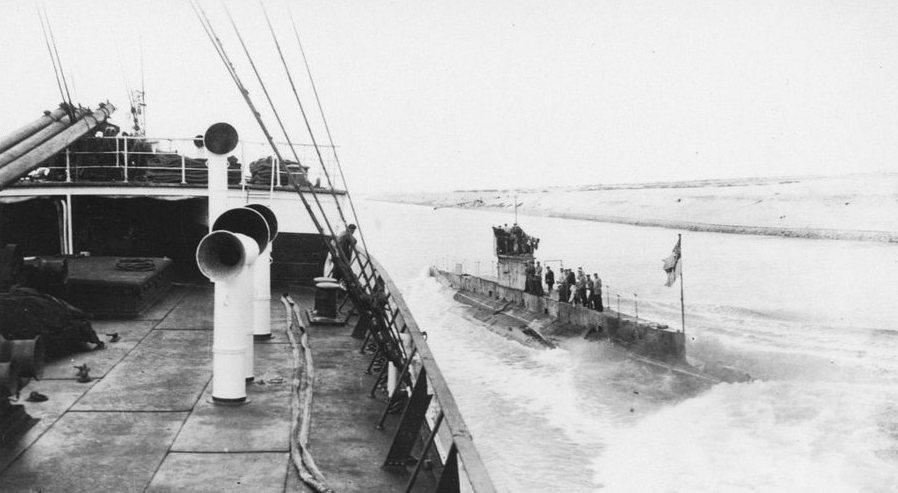
1 of 2
The hundred miles of the Suez Canal stretching from Port Said on the Mediterranean through to Port Suez on the Red Sea provided a shortened sea route linking the British homeland with her dominions in India, Australia and New Zealand. This crucial waterway had to be defended at all costs, which entailed a considerable military commitment to prevent any hostile incursion or possible sabotage.
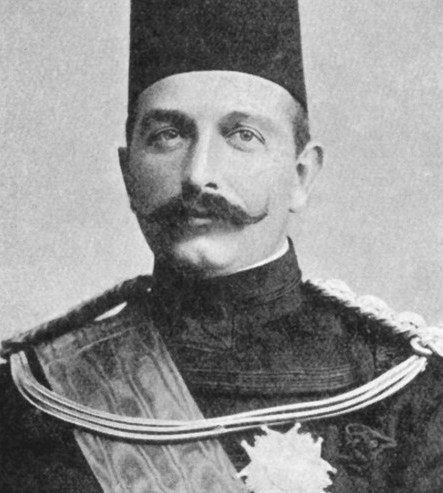
2 of 2
Egypt, technically still part of the Ottoman Empire in 1914, had been under the effective control of a British 'Agent' since 1882. The army was in the hands of a British Commander-in-Chief or Sirdar. British officials headed most government departments in Egypt including the police. The nominal Egyptian head of government and viceroy of the Ottoman Sultan was the Khedive, Abbas El Hilmi; an anglophobe mostly resident in Constantinople, he was summarily deposed by the British in December 1914.
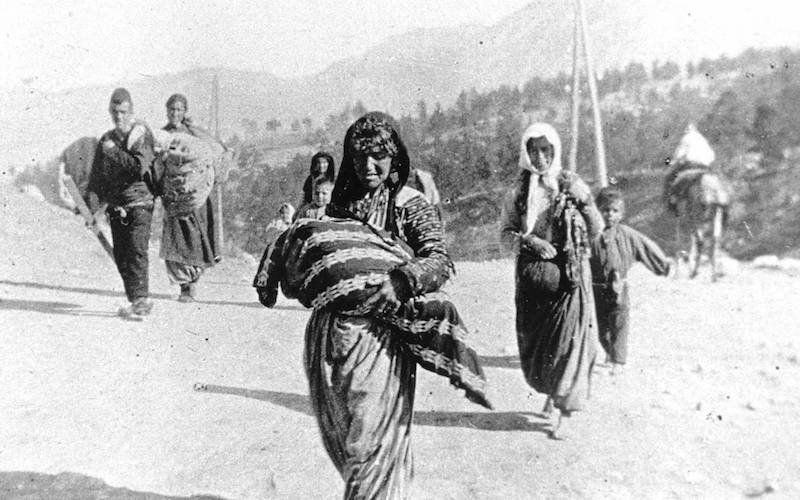
Caucasus Campaign
The complex political situation in the Caucasus escalated into a full fledged war when hostilities began between the Ottoman Empire and Russia.
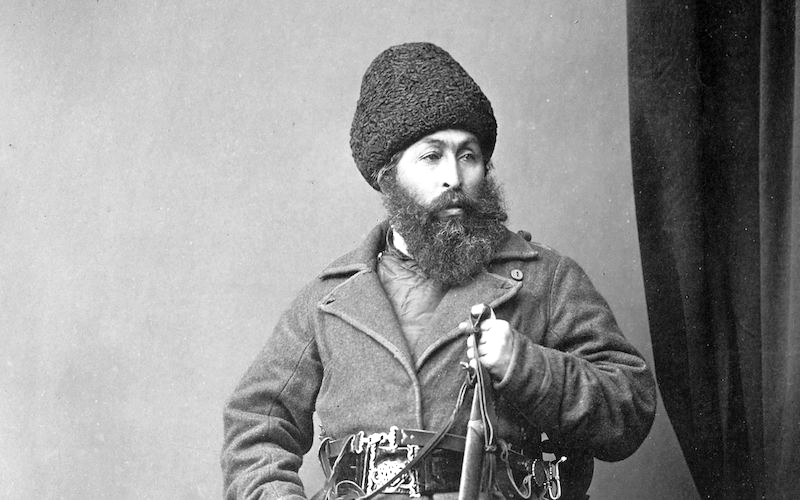
Persia and Afghanistan during the Great War
Germany, with some Turkish assistance, tried to ally with Afghanistan in order for that country to instigate a potential revolt in India. In Persia the Germans tried to eject the British and Russian influences in order to gain access to its rich oil resources.
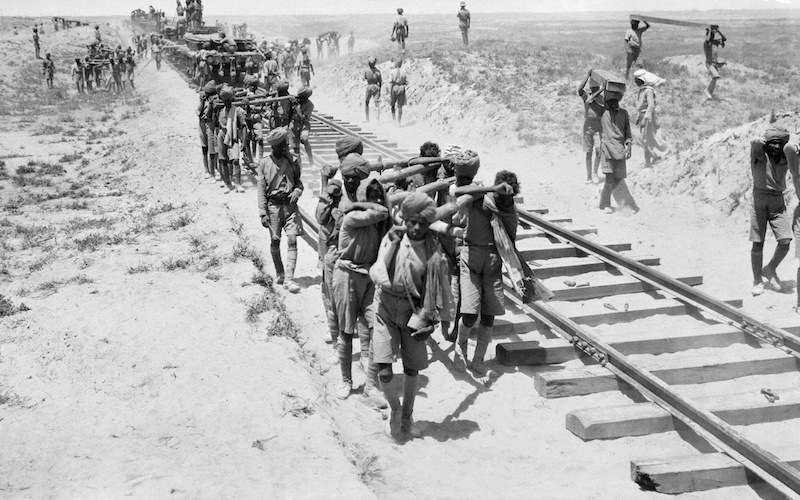
Mesopotamian Campaign
During the Great War British and Ottoman forces fought for control over Mesopotamia and its rich oil fields.
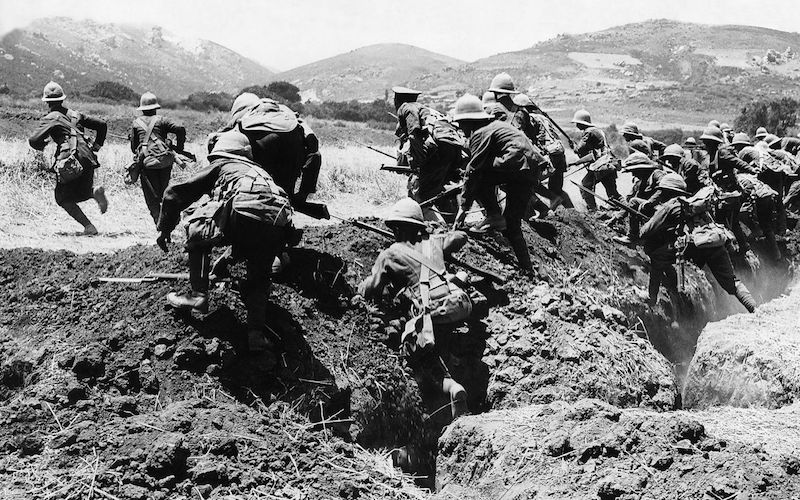
Gallipoli Campaign
During the Gallipoli Campaign the Entente organized a series of British-led amphibious landings on the Gallipoli Peninsula, with the intent of capturing Constantinople, the Ottoman empire's capital city.
- Peter Hart, The Great War: A Combat History of the First World War, Oxford University Press, Oxford, 2013
- Peter Simkins, Geoffrey Jukes, Michael Hickey, Hew Strachan, The First World War: The War to End All Wars, Osprey Publishing. Oxford, 2003
- John Keegan, The First World War, Random House UK Limited, London, 1998





